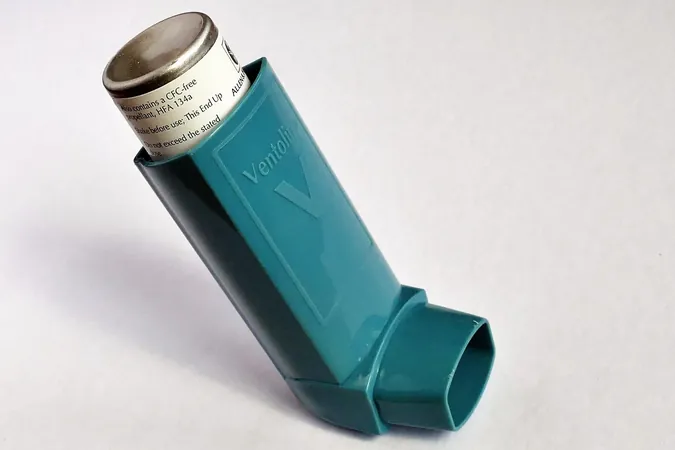
Revolutionary New Tool Promises to Transform Childhood Asthma Detection
2025-06-12
Author: Daniel
Groundbreaking Discovery at Indiana University
A team at the Indiana University School of Medicine has unveiled a game-changing method aimed at enhancing the accuracy and cost-effectiveness of asthma diagnoses in children. By harnessing the power of readily available electronic health records, this innovative approach could significantly ramp up early detection rates, ultimately helping to curb the progression of asthma in young patients.
Introducing the Passive Digital Marker
The key to this breakthrough? A new passive digital marker crafted from the Pediatric Asthma Risk Score, which now utilizes electronic health record data. This tool leverages a wealth of routinely collected medical history to better predict which children are at risk of developing asthma.
Leadership Behind the Innovation
Led by Dr. Arthur Owora, an associate professor of pediatrics and research scientist at the Regenstrief Institute, the project includes contributions from notable figures such as Dr. Benjamin Gaston and Dr. Malaz Boustani. Their collaborative efforts are poised to enhance pediatric care dramatically.
Aims for Early Intervention
According to Dr. Owora, the ultimate goal of this passive digital marker is to ensure that high-risk children are identified sooner, paving the way for timely interventions that could greatly improve asthma management and decrease the likelihood of hospitalizations in the future.
Scalability with Magnificent Potential
Dr. Boustani emphasized that this digital marker is highly scalable, requiring no extra time from clinical teams, as it uses existing data in electronic health records. Such innovations in pediatrics hold enormous promise for bolstering public health for future generations.
Proven Superior Accuracy
Recent findings indicate that this new digital marker outperforms the traditional Pediatric Asthma Risk Score in predicting asthma diagnoses for children aged 4 to 11. The research team analyzed nearly 70,000 children's records from the Indiana Network of Patient Care, leading to compelling evidence that could redefine asthma diagnosis.
Tackling Diagnosis Delays
Dr. Owora points out that while current clinicians effectively assess asthma risk, they can do better. By succinctly summarizing patient medical histories, healthcare providers can make more timely and accurate predictions, mitigating delays in diagnosis that can hinder essential preventive measures.
Next Steps: A Clinical Trial
The next phase involves a randomized clinical trial to evaluate how well this digital marker increases the rate of early asthma diagnoses among at-risk children. It will also investigate whether this tool helps reduce the time from initial risk assessment to official diagnosis.
A Vision for the Future
Should the trial prove successful, Dr. Owora anticipates expanding the implementation of this tool to ensure that the benefits of early detection reach broader communities, potentially impacting state and national healthcare systems.






 Brasil (PT)
Brasil (PT)
 Canada (EN)
Canada (EN)
 Chile (ES)
Chile (ES)
 Česko (CS)
Česko (CS)
 대한민국 (KO)
대한민국 (KO)
 España (ES)
España (ES)
 France (FR)
France (FR)
 Hong Kong (EN)
Hong Kong (EN)
 Italia (IT)
Italia (IT)
 日本 (JA)
日本 (JA)
 Magyarország (HU)
Magyarország (HU)
 Norge (NO)
Norge (NO)
 Polska (PL)
Polska (PL)
 Schweiz (DE)
Schweiz (DE)
 Singapore (EN)
Singapore (EN)
 Sverige (SV)
Sverige (SV)
 Suomi (FI)
Suomi (FI)
 Türkiye (TR)
Türkiye (TR)
 الإمارات العربية المتحدة (AR)
الإمارات العربية المتحدة (AR)